Arrested mayor haunts Russia's Yaroslavl election
- Published
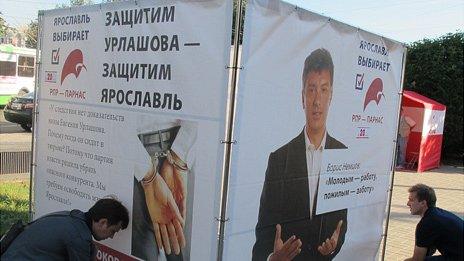
The arrest of the city's mayor features on opposition election posters
The Russian city of Yaroslavl on the Volga River will be an election test for the opposition to President Vladimir Putin this weekend, Rafael Saakov of BBC Russian reports.
The spotlight is on Moscow, where anti-corruption campaigner Alexei Navalny hopes to become mayor, but Yaroslavl is also an important contest.
A key politician in the Yaroslavl campaign is under arrest - opposition candidate Yevgeny Urlashov, who was elected mayor last year with a sweeping majority. Now he is in a Moscow prison, accused of bribe-taking.
His election in April 2012 made Yaroslavl - an industrial centre and transport hub - the only large Russian city with an opposition mayor.
In many Russian cities mayors are not elected, but appointed by the local assembly.
Rules broken?
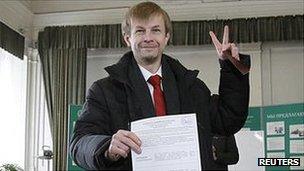
Mayor Urlashov's plight may not be enough to boost voter turnout
Yaroslavl, 245km (152 miles) north-east of Moscow, boasts historic churches and dates back to the medieval origins of the Russian state.
Any discussion of Sunday's election here soon touches on the former mayor - whether you talk to a taxi driver or government official.
"Our choice of Urlashov wasn't approved by those above, so I am going to show my protest by going to the polls," says Irina, who works for a state company.
She alleges that budget funds earmarked for the city were withheld in order to hamper Mayor Urlashov's work.
He was top of the party list of Grazhdanskaya Platforma (Citizen's Platform), the party of billionaire oligarch Mikhail Prokhorov, one of the richest people in Russia.
But the list was not registered for the election, on the grounds of a procedural violation - the party's election headquarters did not have a bank account.
The party claims that its finance manager disappeared after interrogation by local police and therefore could not open a bank account in time for registration.
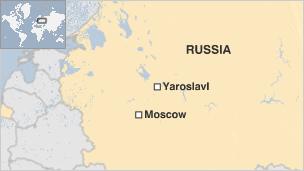
Despite that setback, the party is in an electoral alliance with the parties of Alexei Navalny and Boris Nemtsov, a veteran of Russian politics who served in the government of Boris Yeltsin in the 1990s.
Mr Nemtsov says the whole thing was "fabricated" to make sure that Grazhdanskaya Platforma could not participate.
Claim and counter-claim
But some campaigners in this race accuse Mr Nemtsov's supporters of using the case against the former mayor as a way to win votes.
Ilya Osipov, speaker of the provincial assembly and local head of the pro-Putin United Russia party, calls them hypocrites.
"There are so many people today who are using Urlashov's name for their own political ends," he says. "They are trying to share out the Grazhdanskaya Platforma votes. But we won't get any more or less votes from the rejection of Grazhdanskaya Platforma - their voters are not coming to us."
United Russia has a celebrity heading its candidate list - former Soviet cosmonaut Valentina Tereshkova, the first woman to go into space. She was once a school pupil in Yaroslavl.
The local communists also accuse Mr Nemtsov of trying to steal their electorate by tapping into local sympathy for Mr Urlashov.
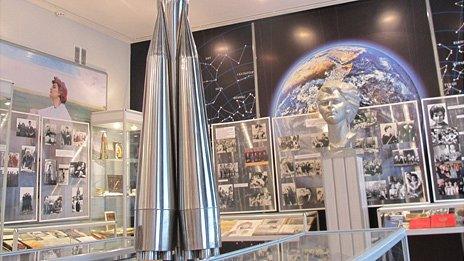
The first spacewoman - Valentina Tereshkova - is a candidate honoured with a local museum
Voters have plenty of choice: the ballot paper will be about a metre long, with candidates from more than 20 parties.
'Political fatigue'
Opposition activists believe the authorities are trying to confuse voters, arguing that some parties are "spoilers" - that is, parties set up simply to draw votes away from the opposition.
But often local people say simply that they are tired of elections and politics altogether.
"Political fatigue is the main problem," says Andrei Alexeyev, leader of the Yaroslavl division of People's Alliance, which supports Alexei Navalny.
"These are the third or fourth elections in the past one-and-a-half years. And the authorities do nothing to get people to the polling booths."
Local electoral officials say it is not their job to boost the turnout. They forecast turnout will be at around 20%.
- Published6 September 2013
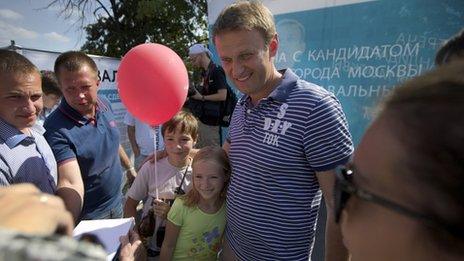
- Published18 July 2013
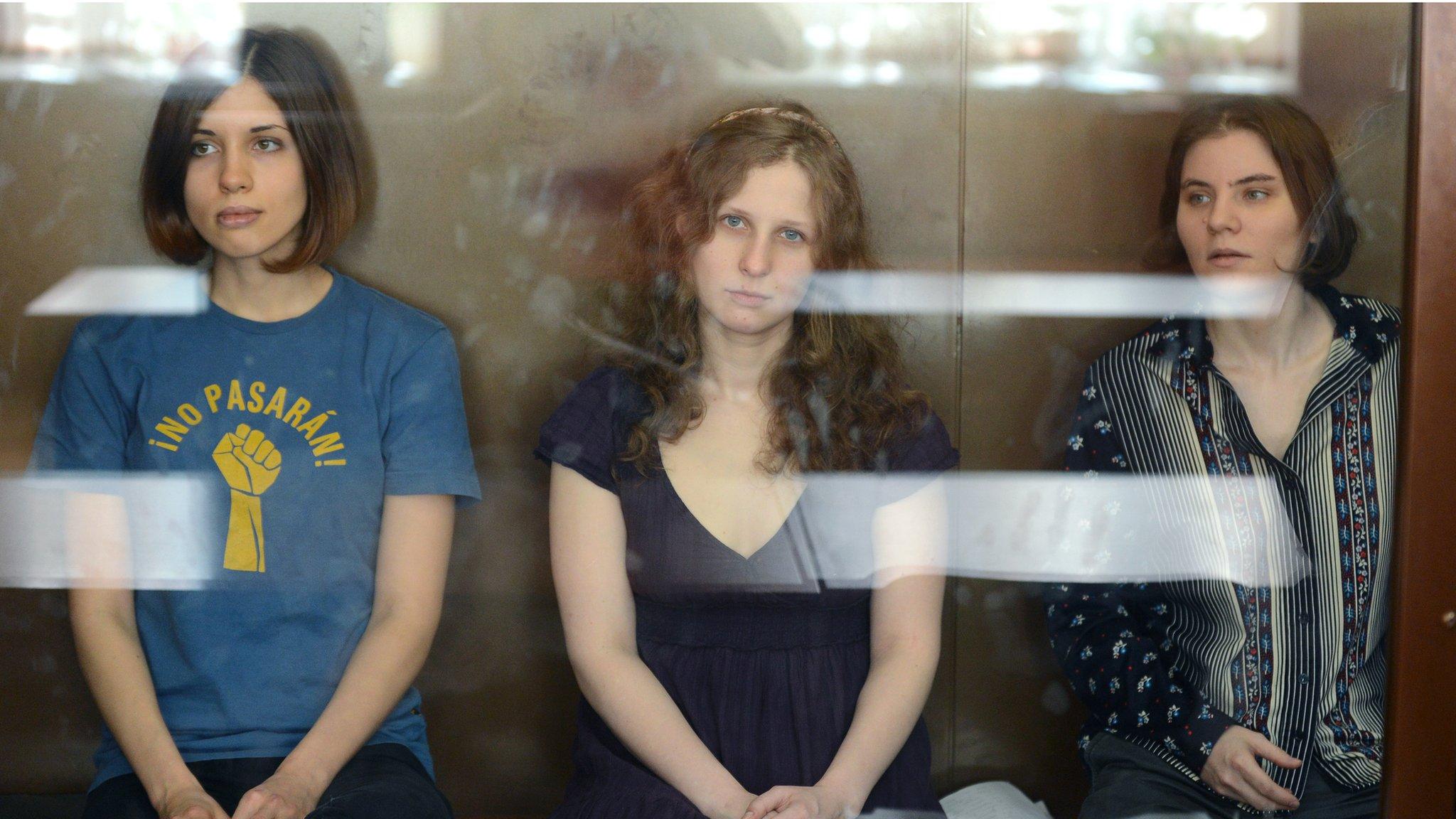
- Published25 March 2024
